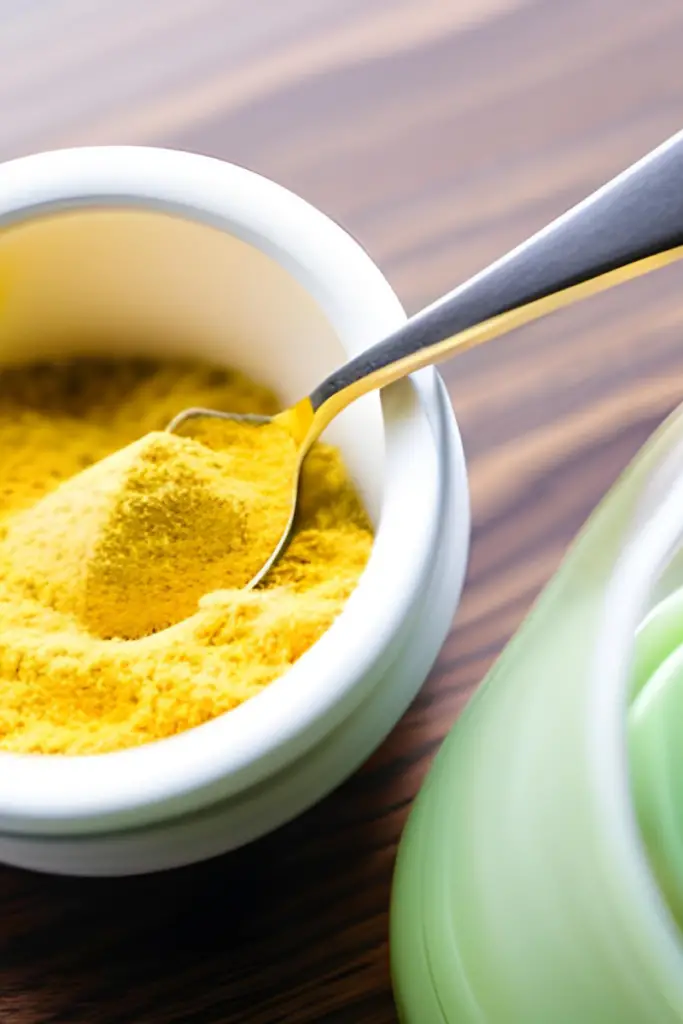Being a new parent can be incredibly challenging, especially when your baby is suffering from colic. Colic is a common condition that affects up to 40% of infants, causing them to experience excessive crying, fussiness, and discomfort. While colic is not harmful to a baby’s health, it can be stressful for both parents and baby. Fortunately, there are many natural remedies that can help soothe colic symptoms and provide relief for your little one. In this article, we’ll explore some of the most effective natural remedies for colic in babies.
Confused Whether Your baby is suffering from Gas or Colic Pain ? Read Gassy or Colicky? How to Tell the Difference in Your Fussy Baby
Definition Of Colic And Its Symptoms
Colic is a term used to describe excessive crying in infants that lasts for more than three hours a day, three days a week, for at least three weeks. The exact cause of colic is unknown, but it is believed to be related to digestive issues, such as gas and bloating. Colic typically begins around two to four weeks of age and often improves by three to four months.

The symptoms of colic can be distressing for both parents and infants. Some of the most common symptoms of colic include:
- Excessive crying, particularly in the evening
- Fussiness and irritability
- Clenched fists and tensed muscles
- Arching of the back
- Difficulty sleeping
- Refusing to eat or eating too much
- Passing gas more frequently than usual
Table of Contents
Common Causes Of Colic In Babies
While the exact cause of colic is unknown, there are several factors that are believed to contribute to the condition. These include:
- Immature digestive system: Babies’ digestive systems are still developing, which can cause discomfort and digestive issues.
- Over stimulation: Babies can become overwhelmed by too much noise, light, or activity, which can lead to excessive crying and fussiness.
- Food allergies or intolerance: Some babies may be sensitive to certain foods, such as dairy or soy, which can cause digestive issues and colic symptoms.
- Swallowing air: Babies can swallow air while feeding, which can cause gas and discomfort.
Importance Of Finding Natural Remedies For Colic
While there are medications available to treat colic, many parents prefer to try natural remedies first. Natural remedies are often less invasive and can be just as effective as medication. Additionally, many natural remedies have other benefits, such as promoting relaxation and bonding between parent and baby. It’s important to note that not all remedies will work for every baby, so it’s essential to try different remedies and find what works best for your little one.
Natural Remedies For Colic
If your baby is experiencing colic symptoms, there are several natural remedies you can try immediately to provide relief. These include:
Burping
Burping is one of the simplest and most effective ways to relieve colic symptoms in babies. When a baby swallows air while feeding, it can cause gas and discomfort, leading to colic symptoms. Burping helps release the trapped air, providing relief for your baby.
To burp a baby properly, hold them upright and gently pat or rub their back. You can also try holding them over your shoulder or sitting them on your lap and gently bouncing them.
Infant Massage
Infant massage is another effective natural remedy for colic. Massage can help soothe your baby’s digestive system, promote relaxation, and reduce stress levels. Massage can also help strengthen the bond between parent and baby.
To perform infant massage, start by placing your baby on their back and gently rubbing their tummy in a circular motion. You can also try massaging their legs, arms, and back.
Warm Bath
A warm bath can help relax your baby and soothe colic symptoms. The warm water can also help relieve muscle tension, promote digestion, and reduce stress levels in both the baby and parent.
To give your baby a warm bath, fill the tub with warm water (not too hot), and support your baby’s head and neck as you lower them into the water. You can also add a few drops of lavender oil to the bathwater to promote relaxation.
Swaddling
Swaddling is a technique that involves wrapping your baby snugly in a blanket. Swaddling can help your baby feel secure and calm, reducing colic symptoms. It can also prevent your baby from flailing their arms and legs, which can cause discomfort and wake them up.
To swaddle your baby properly, lay the blanket flat and fold one corner down. Place your baby on the blanket with their head above the folded corner. Wrap one side of the blanket over your baby’s chest and tuck it under their opposite arm. Then, bring the bottom of the blanket up over your baby’s feet and tuck it behind their back. Finally, wrap the remaining side of the blanket over your baby’s chest and tuck it under their opposite arm.
Pacifier

A pacifier can provide comfort and soothe colic symptoms in some babies. The sucking motion can help release tension in the jaw and promote relaxation. It can also provide a distraction from the discomfort of colic.
When using a pacifier, it’s important to wait to introduce it until breastfeeding is well-established, usually around three to four weeks. Additionally, it’s essential to choose a pacifier that is the right size for your baby’s mouth and to clean it regularly.
Long-Term Natural Remedies For Colic
In addition to immediate remedies, there are several long-term natural remedies that can help reduce colic symptoms in babies. These include:
Change Of Scenery
A change of scenery can help distract your baby from colic pain and provide a new environment for them to explore. You can take your baby for a walk outside, visit a different room in your home, or go for a drive in the car.
White Noise
White noise can help soothe your baby and promote relaxation. White noise machines, such as those that mimic the sound of a heartbeat or a rainstorm, can be effective in reducing colic symptoms. You can also try playing white noise through a speaker or using a fan to create a similar effect.
Colic Calm Drops
Colic calm drops are a natural supplement that can help soothe colic symptoms in babies. The drops contain a combination of homeopathic ingredients, such as chamomile and fennel, which can help reduce gas and promote digestion.
It’s important to consult with your pediatrician before giving your baby any supplements, including colic calm drops.
Probiotics
Probiotics are beneficial bacteria that can improve digestion and reduce gas in babies. Probiotics can be found in certain foods, such as yogurt and kefir, or in supplement form.
When choosing a probiotic supplement for your baby, it’s important to choose a high-quality product specifically formulated for infants.
Herbal Teas
Herbal teas can provide relief for colic symptoms in babies. Chamomile, fennel, and ginger are all herbs that have been shown to promote digestion and reduce gas. You can give your baby a small amount of tea, diluted with water, or you can drink the tea yourself if you are breastfeeding.
Other Natural Remedies For Colic
In addition to the remedies mentioned above, there are several other natural remedies that can help soothe colic symptoms in babies. These include:
Caraway Tea

Caraway tea is a natural remedy that can reduce colic symptoms in babies. Caraway seeds contain compounds that can help promote digestion and reduce gas. To
make caraway tea, boil water and add a teaspoon of caraway seeds. Let the seeds steep for 10-15 minutes, then strain the tea and let it cool before giving it to your baby.
Catnip Tea
Catnip tea is another natural remedy that can help soothe colic pain in babies. Catnip contains compounds that can help reduce inflammation and promote relaxation. To make catnip tea, boil water and add a teaspoon of dried catnip leaves. Let the leaves steep for 10-15 minutes, then strain the tea and let it cool before giving it to your baby.
Dill Water
Dill water is a traditional remedy that has been used for centuries to soothe colic symptoms in babies. Dill contains compounds that can help reduce gas and promote digestion. To make dill water, boil water and add a teaspoon of dill seeds. Let the seeds steep for 10-15 minutes, then strain the tea and let it cool before giving it to your baby.
Warm Compress
A warm compress can help soothe colic pain in babies. The warmth can help relax muscles and reduce tension. To make a warm compress, soak a clean cloth in warm water and wring out the excess water. Place the cloth on your baby’s tummy and hold it in place for a few minutes, repeating as needed.
Tummy Time
Tummy time can help stimulate digestion and reduce colic symptoms in babies. Placing your baby on their tummy can help relieve pressure on their tummy and promote movement in their digestive system. It’s important to always supervise your baby during tummy time and to make sure they are comfortable.
Baby Feeding Bottle
Studies suggest that the type of bottle and feeding method used may contribute to colic pain in some infants. For example, using a bottle with a slow-flow nipple and pacing feeding may reduce the amount of air swallowed by the infant, which can lead to colic pain. Additionally, some babies may have an intolerance or allergy to certain materials or chemicals in the bottle, such as BPA, which can also contribute to colic pain. So know which baby bottle is right for your little one.
Baby Carrier
Wearing your baby in a carrier can help soothe them and reduce colic symptoms. The close contact can provide comfort and promote relaxation. There are many types of baby carriers available, including wraps, slings, and structured carriers. It’s important to choose a baby carrier that is safe and comfortable for both you and your baby.
Additional Tips And Advice For Parents
In addition to natural remedies, there are several other tips and pieces of advice that can help parents manage colic symptoms in their babies. These include:
Change In Diet
If you are breastfeeding, making changes to your diet can help reduce colic symptoms in your baby. Avoiding foods that are known to cause gas, such as dairy and beans, and including foods that promote digestion, such as ginger and probiotic-rich foods, can be helpful.
If your baby is formula-fed, switching to a different formula can also help reduce colic symptoms. There are several types of formulas available, including those specifically designed for babies with sensitive stomachs.
Relaxation Techniques
Managing stress levels and promoting relaxation can also help reduce colic symptoms in babies. Parents can try relaxation techniques such as deep breathing, meditation, or yoga to reduce stress levels and promote relaxation.
Patience And Support
Dealing with colic can be incredibly challenging for parents, so it’s essential to seek support from family, friends, or a support group. It’s also important to remember that colic is temporary and will eventually go away. Being patient and remaining calm during this challenging time can make a big difference in managing colic symptoms.
Conclusion
Colic can be a difficult condition to manage, but there are many natural remedies that can provide relief for both parents and babies. From burping and infant massage to probiotics and herbal teas, there are many options to try. It’s important to remember that not all remedies will work for every baby, so it’s essential to try different remedies and find what works best for your little one. With patience, support, and a little experimentation, parents can help soothe their baby’s colic symptoms and make this challenging time a little easier for everyone involved.
Experiences About Natural Colic Remedy Shared By Moms
My baby had terrible colic, and it was heartbreaking to watch her in pain. One thing that really helped was babywearing. I would use a wrap or carrier to hold her close to my chest, which seemed to calm her down. We would go for walks or just hang out around the house, and she would feel much more comfortable. It was a great bonding experience too!
Sarah H.
When my son was born, he had colic pains that made him cry constantly. We tried everything we could think of, but the one thing that really worked was tummy time. We would lay him on his stomach and gently rub his back, which seemed to relieve some of his discomfort. We also noticed that it helped with his digestion and overall development. It was a simple but effective solution that we used often!
Rachel C.
As a mom of twins, dealing with colic was doubly difficult. We tried a lot of different methods, but the one thing that worked consistently was a warm bath. We would fill up the tub with warm water and let the babies soak for a while. The warmth helped to soothe their muscles and calm their crying. It was a lifesaver during those tough early months!
Lisa T


![Can I Eat Ice Cream While Breastfeeding?[Answered]](https://www.newmomstuff.com/wp-content/uploads/2021/07/mom-eating-ice-cream.jpg)

